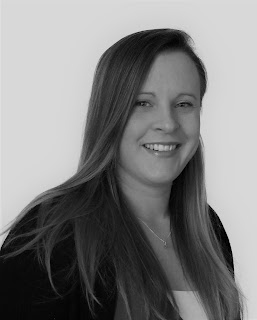 |
| Sophie Ross-Smith |
In conversation with Sophie Ross-Smith, Manager at
the Cabot Institute
What is your
role at Cabot Institute?
I am the Manager for Cabot Institute for the
Environment, responsible for the day-to-day running of the Cabot Institute, contributing
to and delivering our strategy, supporting our community, and managing Cabot’s
dedicated professional services team.
How long have you been part of Cabot?
I joined Cabot in March 2021 but have enjoyed collaborating
with Cabot in my previous roles at the University, so super excited to have
joined the Cabot team.
What is your
background?
I studied Biological Sciences at Bristol and then went
on to work at the University, where I’ve held numerous roles focusing on research
and project management, bid development and partnership management. I have
working in numerous disciplinary areas from aerodynamics to the future of our
communication system to city scale experimentation. I have also managed some of
our university key partnerships and keen to grow our partnership within Cabot. Having worked in lots of different areas, I
have a great university network and passionate about bring people together to
solve some of the most complex challenges we face today.
Why did you want
to join the team?
I find working on interdisciplinary projects
inspiring, rewarding and a continuous learning experience, coupled with Cabot’s
focus on environmental research and our mission to ‘protect the environment and
identifying better ways to live in our changing planet’, it was a team really wanted
to join. To wake up every morning and know that what you are doing daily is
making our planet a better place to live, is awesome!
What do you
think is the biggest environmental challenge facing us today?
Climate change and the implementation of the changes
we need to take to tackle our climate and ecological emergency. If you want to
find out more about some of our biggest environmental challenges, check out our
Cabot Conversations.
What is your
favorite part of your job?
Ooh, not sure I can pick a favorite, but
here are a few highlights: working with the fantastic Cabot team and Community,
meeting passionate and inspiring Caboteers daily, the vibrant and can-do
culture of Cabot meaning every day is different.
What are you
most looking forward to over the next 10 years of Cabot?
We have an incredible community of over 600 experts,
who are working across multiple boundaries to help solve complex environment
issues. I am looking forward to continuing to support this community to grow
from strength to strength and continuing to help people connect across the
University. I think we have an exciting opportunity over the next 10 years to
build upon our strong community foundations, to increase our profile and
develop partnerships to amplify the impact of our research. Our pioneering Cabot Master’s by Research Programme, which spans across all faculties, is training our
future leaders in global environmental challenges and I’m excited to see how
can continue to develop and nurture talent through educational and development
opportunities. I am looking forward to
continuing to work with Guy and the rest of our senior leadership team, the
Cabot team, our Co-theme leaders, and our wider community to realise our
ambition goals.
Find out more about Sophie here.